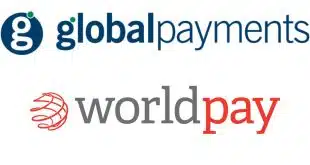Just when most payments executives had concluded EMV was the only game in town for chip cards in the United States, a financial-services standards committee has issued a proposal for a meeting to examine the case for an open, industry-based alternative.
In a letter dated Jan. 20 and obtained by Digital Transactions News, the Annapolis, Md.-based Accredited Standards Committee X9 Inc. asks committee members whether they would be interested in participating in a two-day meeting to “discuss the best way forward on U.S. [integrated circuit] standards (for card and mobile payments).” No set of dates is proposed for the meeting, which will go forward only if enough recipients indicate interest, but the letter asks for responses by Feb. 11. An unspecified Federal Reserve office will host the meeting, according to the letter, an advance copy of which was sent by e-mail to an X9 mailing list.
The meeting’s purpose would be to take steps toward an alternative technical standard to EMV, not a replacement, according to the letter. The document does not touch on how a new chip card standard would interoperate with the two-decades-old EMV chip card specifications, which are proprietary to Visa Inc. and MasterCard Inc. Indeed, an agenda item as set out in the letter is to “[d]iscuss the benefits, if any, of developing an open, consensus based integrated chip card standard for adoption in the U.S. in addition to EMV.”
The X9 committee, which develops standards for U.S. financial services ranging from payments to securities, embraces more than 140 members, including payments networks, processors, payments technology vendors, providers of security solutions, merchants, and banks. Once finalized, the committee’s standards are adopted by the American National Standards Institute (ANSI).
EMV, which stands for Europay-MasterCard-Visa, has picked up momentum in the United States over the past couple of years after winning adoption in much of Europe and in Canada and Mexico. Beginning with Visa, the biggest U.S. card networks have issued so-called road maps for EMV adoption, including deadlines for acquirer, issuer, and merchant readiness. The first deadline, calling for acquirers to be able to process EMV transactions, is April 1.
But the X9-led move to start discussing an open-standard alternative could blunt that momentum. The committee’s letter refers to concerns expressed by “some stakeholders” regarding adopting EMV as “the exclusive integrated chip standard in the U.S.” Among these concerns, the letter says, are the age of the standard, its proprietary nature, and inconsistencies in the road maps released so far by the networks. “EMV would benefit from an open, public standards development process like ANSI or ISO that engages all stakeholders fully and transparently,” the letter says. MasterCard did not respond to a Digital Transactions News request for comment on the letter. A Visa spokesperson referred to the EMV Migration Forum for comment. The Forum is an industry group created by the Princeton Junction, N.J., trade group Smart Card Alliance to advance U.S. chip card development. Randy Vanderhoof, executive director of the Alliance, was not immediately available for comment.
While warning that X9’s initiative, if it bears fruit, will likely slow U.S. chip card development, including EMV, to a crawl, expert observers contacted by Digital Transactions News express optimism about the committee’s involvement. “For some stakeholders, that [slowdown will] be just fine and, from a technical point of view, could be a good outcome,” notes George Peabody, an independent industry consultant, in an e-mail message. “Few are screaming for EMV at the [point of sale]. I realize we're looking at dog's breakfast at the POS for awhile but maybe that's what we need to eat.”
Other observers say work toward an open chip standard is long overdue. “X9 is one of the few organizations in the world that might be able to broker a solution that is fair and reasonable for all hands,” argues Steve Mott, principal at BetterBuyDesign, a payments consultancy in Stamford, Conn., in an e-mail. “X9 could be very effective at surfacing and screening all the experience and ideas for the best chip-based transaction security available.”





